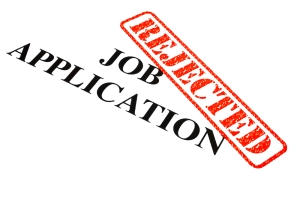 Looking your best in job interviews is an essential part of showing potential employers that you’re professional and serious about the opportunity. The same goes for maintaining a level of professionalism and success in the workplace. And, doing so doesn’t have to be difficult. In fact, there are a number of things you can do right now to make your professional image look even more professional. Here are nine tips for an instant professional make-over.
Looking your best in job interviews is an essential part of showing potential employers that you’re professional and serious about the opportunity. The same goes for maintaining a level of professionalism and success in the workplace. And, doing so doesn’t have to be difficult. In fact, there are a number of things you can do right now to make your professional image look even more professional. Here are nine tips for an instant professional make-over.
Embrace the power of a neck tie
Gentlemen, if you’re heading to a job interview, don’t forget to throw on a nice tie. Wearing a tie instantly shows professionalism and lets the interviewer know you’re taking this opportunity seriously.
Polish your shoes
It’s amazing how a freshly-polished pair of nice shoes can pull together an interview outfit. Though it’s a step often missed, polishing your shoes is an important part of looking professional in interviews or at work. If you don’t have the extra time or money to have your shoes shined professionally, invest in some inexpensive polish and get to work yourself.
Make sure you’re well-groomed
It may seem obvious, but it’s important to look your best during interviews or while on the job. This includes your overall personal hygiene, too. You can dress well, prepare for the interview, and speak professionally, but neglecting personal hygiene can instantly ruin the image you want to project. If you have an interview scheduled, make sure you’re ready by showering, fixing your hair, and maintaining a clean-shaven appearance.
Dress to impress
Whether at work or in a job interview, the way you dress says a lot about you. If you’re going to an interview, what you wear can make or break your chances of landing the job. Before you head out of the house, make sure you’re dressed in clean, unwrinkled clothes. Take your interview outfit to the dry cleaners a few days before if you need to, and be sure to use a lint roller if you have animals that shed in your home. To help you understand what to wear to an interview, research the company’s culture before you arrive.
Invest in comfortable shoes
With any job, chances are you’ll spend a good deal of time on your feet. So, invest in a pair of comfortable, work-appropriate shoes to get you through the day. If your shoes are old, worn, and damaged, you could not only be hurting your image, but also your feet and posture.
Practice your speech
Speaking in front of others can be nerve-racking, which may lead you to use words like “um,” or “uh” far more frequently than interviewers would like to hear. To help you eliminate such words and gain better control over your speech, try speaking into a recording device and playing it back. When you listen to the recording, take notes on your natural speaking habits and try to adjust. Do this as much as you need to until you’ve gained better control and confidence over your speech.
Be positive, respectful, and reliable
Being professional isn’t just about how you look or speak. The way you behave can also play a big role in how you appear to interviewers, managers, or co-workers. Especially in interviews, it’s important to maintain a positive attitude and be respectful. Be courteous to everyone you meet during an interview, from the person at the front desk to the interviewer. And, focus on being reliable from the start. Show up on time and perform any job-related interview assignments requested of you afterwards. At work, showing up on time, working diligently, and completing projects with accuracy and efficiency can help boost your professional image instantly.
Stay organized
If you have a workspace at your job, it’s important to keep it neat. Professionalism doesn’t look like a messy, disorganized desk, but rather a tidy, clean space conducive to learning and working. When you clean your desk, don’t forget about your computer. Keeping your desktop clean and organized can show a level of professionalism that is sometimes overlooked.
Make your private life private again
Social media is beneficial for many reasons, including helping you in your job search. But, your online presence can also cost you the interview or the job. It’s important to keep your social media profiles clean and professional in case an interviewer, manager, or co-worker finds them. To take greater control of your personal life, be sure to adjust your social media privacy settings and maintain a professional look on all of your accounts. Need help? Check out these tips for detoxing your social media.
How do you make sure you look as professional as possible on the job or in interviews? Share your tips in the comments section below!

 hard work will impress the right person. Right now, companies are starting to see an increase in demand but may be hesitant to hire someone full-time, however if the economy continues to improve while you are working a temporary assignment, the company may become more secure and ready to hire full-time workers.
hard work will impress the right person. Right now, companies are starting to see an increase in demand but may be hesitant to hire someone full-time, however if the economy continues to improve while you are working a temporary assignment, the company may become more secure and ready to hire full-time workers. uctivity and career. Here are some ways you can mend your working relationship with your supervisor and begin a fresh slate at work.
uctivity and career. Here are some ways you can mend your working relationship with your supervisor and begin a fresh slate at work.
 y, afraid, and apologetic. It’s human nature and should be expressed with your closest friends, relatives, or counselor. But try to avoid jumping into the job search with a heightened sense of emotion.
y, afraid, and apologetic. It’s human nature and should be expressed with your closest friends, relatives, or counselor. But try to avoid jumping into the job search with a heightened sense of emotion.


 Unfortunately, constantly being late can send the wrong message to co-workers and your employer. Some see being late as a disregard for company policy. Others may believe you are late because you are disorganized. These messages can translate into assumptions about your character and work ethic. For example if they think you are late because you are disorganized, you may not be considered for leading a big project with a tight deadline.
Unfortunately, constantly being late can send the wrong message to co-workers and your employer. Some see being late as a disregard for company policy. Others may believe you are late because you are disorganized. These messages can translate into assumptions about your character and work ethic. For example if they think you are late because you are disorganized, you may not be considered for leading a big project with a tight deadline.